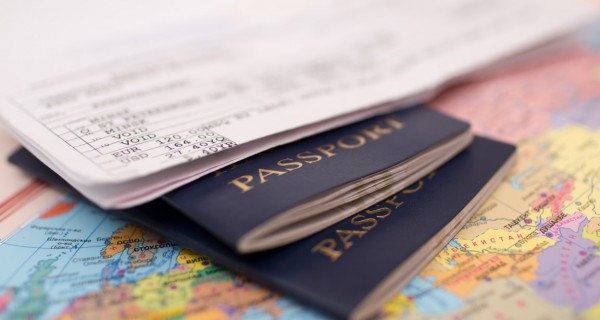Possibilities of Dutch nationality planning: dual and multiple citizenships

The COVID-19 pandemic has proven that having one nationality is not enough. Governments can introduce travel restrictions in a myriad of ways, making international travel difficult, time-consuming and expensive. A passport that normally grants visa free access to 180+ countries can become powerless at the will of some (unelected) "leaders". A number of countries plan to introduce electronic travel authorizations in near future (eg. the UK ETA by the end of 2024 and the EU’s ETIAS in 2025). Not to forget the freedom to settle in another country, the safety of one’s lifelong savings, taxation considerations and the interests of our future generations etc. These are some of the reasons why having dual/multiple nationalities is important. Some people may mistakenly believe that nationality planning is only for the superrich. No, everyone can do nationality planning, if time, location and human relationship are coordinated well.
If you (plan to) live in the Netherlands, it is of even greater importance that you consider the issue of nationality planning (early), especially as the Dutch nationality laws are still very old fashioned and there is little sign of improvement.
The general rules of the Dutch nationality laws are that: when one acquires Dutch nationality, he/she needs to renounce all his/her previous nationalities; when a Dutch citizen acquires a foreign nationality voluntarily, he/she will lose Dutch nationality automatically. However, there are many exceptions to these general rules. If you know the exceptions well, you may be able to become a dual/multiple citizen and add the Dutch passport to your portfolio.
In the following paragraphs, we will discuss three redacted cases, where (early) nationality planning appears to be very necessary/helpful.
Case 1: His Majesty the King works too hard
The first case involves a US client who has been living and working more than five years in the Netherlands. The US client knows that, when a foreigner is a spouse or a registered partner of a Dutch citizen, he does not need to renounce his previous nationalities after becoming Dutch through naturalization. This US client applied for naturalization before becoming a registered partner of a Dutch citizen, as he thought it would take the IND and His Majesty up to 12 months to decide on his naturalization application. At the same time, the client and his Dutch partner were preparing for their registered partnership. Unfortunately, in this case, the IND and His Majesty worked too hard. After four months, His Majesty signed the royal decree. On the other hand, there was a delay with the registered partnership procedure at the municipality. As a result, His Majesty signed the royal decree approximately 1 week before the completion of the registered partnership procedure! Although the naturalization ceremony took place after the completion of the registered partnership, this US client was still required to renounce his US citizenship if he wanted to keep his Dutch nationality. At the end, this US client chose to renounce his newly gained Dutch nationality.
Case 2: An international family that has been living in three different EU countries
The second case involves an international couple with two minor children. A Canadian woman has been living together with her Belgian husband and their two Canadian-Belgian children in three different EU countries. This Canadian woman has been living longer than 15 years in the EU. As she and her family have been moving around, she has not been staying long enough in a single Member State to apply for citizenship. However, after having lived 15 plus years in the EU, she sincerely wants an EU passport. However, she does not want to lose her Canadian citizenship. Unfortunately, if she applies for naturalization in the Netherlands, she will need to renounce her Canadian citizenship. In the end, her Belgian husband chose to initiate the process, as an EU citizen can become a dual citizen faster than a non-EU citizen does. After her husband becomes a dual citizen of Netherlands/Belgium, the Canadian woman can apply for Dutch nationality without renouncing her Canadian citizenship.
Case 3: A Chinese family with Italian background
A Chinese couple and their child have obtained the status of EU long term stay (“Soggiornante di lungo periodo – CE”) in Italy. On the basis of the EU Directive 2003/109, they acquired a Dutch residence permit. The family want to give as many choices as possible to their child. The advice is that the father and the child should apply for Italian citizenship first, as the father speaks better Italian than the mother does. On the other hand, the mother should study the Dutch language (instead of Italian) and becomes a Dutch citizen. Under Chinese nationality laws, a Chinese citizen loses his/her Chinese nationality when he/she acquires a foreign nationality voluntarily. In this case, after the mother becomes Dutch, the father and their child can apply for Dutch nationality. If everything goes smoothly, the mother will be a Dutch citizen only, but the father and their child will have both Dutch and Italian citizenships.
Hopefully, these three redacted cases have shown that it is technically and legally possible to do Dutch nationality planning. However, nationality planning can be quite complicated, as it involves nationality laws of different countries. If you are interested in nationality planning and/or giving as many nationalities as possible to your family and the future generations, please feel free to contact Mynta Law. We will examine the merits of each case and advise on the best route to achieve dual/multiple nationalities.

Related articles
- How Not To Transfer Your Main Residence - Everything Expats Should Know
- Unexpected Visa Rejection? There may still be routes forward
- Knowledge of Dutch for naturalisation: from A2 to B1 soon?
- Reacquiring Dutch nationality
- The dreadful issue of residence gap (“verblijfsgat”) and latest positive developments
- Dual citizenship for new Dutch citizens. Ways to retain your current nationality
- Dutch passport vs. Belgian passport: a comparative analysis
- The New Integration Act: its impact on permanent residence and Dutch citizenship applications
